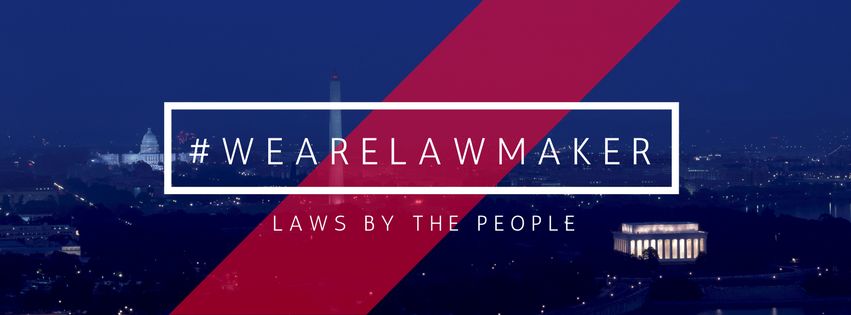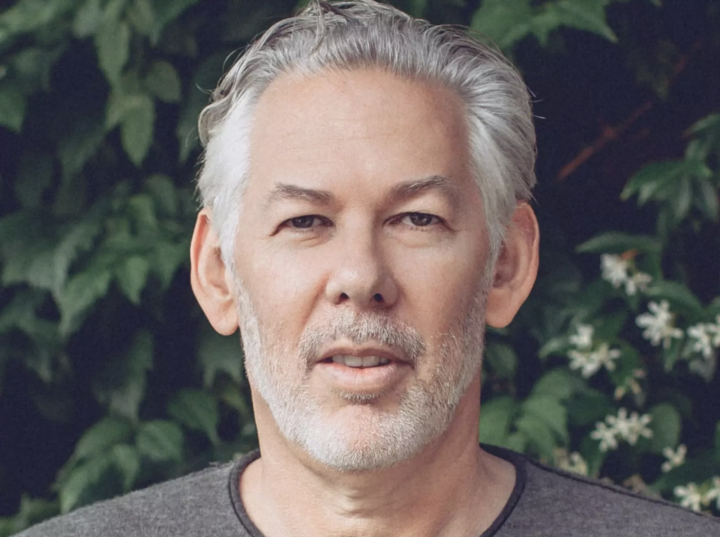Across the US the debate surrounding gun laws appears to be more prevalent than ever, with progress being made in numerous states. Recently a judge granted a police request to strip a man of his firearms using Florida’s new gun law that was inspired by the deadly shooting in Parkland. At the other end of the country in Massachusetts, a federal judge upheld a state law banning assault weapons including the AR-15, saying the U.S. Constitution’s Second Amendment guarantee of Americans’ right to bear firearms does not cover them.

Amit Thakkar
While these events might show promise for reforming gun laws in the US, it is unfortunate that it has taken a tragic event such as the Parkland shooting to bring about these changes. However, thanks to a new platform, the US has a new tool to pioneer laws to help society and the greater good, without the shock factor of unfortunate events to inspire change.
LawMaker.io is a platform giving Americans the power to crowdsource new policies and engage their elected officials. To get a better understanding of what this platform can offer and how it can bring about change, we spoke with the founder and CEO Amit Thakkar.
What first inspired you to create and pioneer LawMaker?
I first became a corporate lobbyist at 23 years old. There was no reason I should have had that much political influence at that stage in my life, but because of my wealthy clients, my firm, and my title, I was able to influence laws in a way that most Americans can never dream to. It didn’t make sense to me that such a small group of wealthy and well-connected people had such an outsized influence on the laws that are written and the way our government works. I knew there needed to be a free way that all Americans could propose common-sense ideas for laws and influence elected officials in a way that benefitted all Americans instead of just a powerful few.
How do you foresee LawMaker changing the creation of laws across the US?
As money and media’s influence continues to grow in American politics, politicians more and more ignore their constituents in favor of wealthy special interest groups. And then campaign season rolls around, and elected officials start asking regular Americans for our votes and our money, promising us they really do care about our interests.
Voters are on to this scheme, and increasingly feel that none of the candidates on their ballots are truly interested in representing their interests. But voters haven’t figured out what to do about it. At LawMaker, we wanted to build a way that everyday people could propose ideas for laws that would really improve their lives, and build the influence necessary to influence their government, not just during elections, but between elections as well.
By tapping into our existing social media habits, LawMaker offers Americans a way to crowdsource new policy ideas with likeminded people across the nation to learn from the best laws around the country, and propose ideas that can make their cities, counties, states, or even the nation, better places to live. We empower our users to share their ideas with their neighbors and community members to build a concentrated base of political support.
When they use LawMaker and social media to engage their elected officials, suddenly, they are not merely a lone voice, easy to ignore, but a coalition of engaged constituents — a voting block — that elected officials need to start a conversation with. Sure, your politicians can choose to ignore your policy and your coalition, but LawMaker will remind you they did so come to the next election, and you can make your own decision whether you want to support someone who ignored an issue that was important to you or support another candidate.
Since we can’t get rid of the outsized influence of lobbyists in America, LawMaker wants to empower everyone to become their own lobbyists and give them the tools necessary to start productive policy debates on their own to put their issues on the priority lists of the people they elected to represent them.
It was recently announced that a number of cities in southern Florida have filed a lawsuit challenging a law that gives the state of Florida the authority to regulate firearms and imposes strict penalties on local officials who pass their own gun laws. The mayors said they want the power to regulate guns in public spaces in their cities. What impact do you foresee LawMaker having on local mayors that want to take more control of local laws?
This is exactly the reason we built LawMaker. In Florida, residents need to decide if they want the state to mandate the type of laws and policy discussions they are allowed to have in their cities and counties. Do they want to allow state politicians, supported by and scared of powerful interest groups, to be able to punish local elected officials for even bringing up topics that are important to their constituents?
In a case like this, LawMaker users can have an impact on both state and local policy. The residents of Florida have many ideas about ways to regulate guns in public spaces that are far less extreme than the proposals from the NRA or gun control groups. LawMaker would be the ideal venue to propose these ideas, build upon them with people from all sides of this debate, and demand the attention of local elected officials.
At the same time, Floridians may decide that a state law that outlaws the enactment of local laws is not in their best interest. On LawMaker, they can propose the repeal or modification of a law they don’t like and build a coalition to spark that discussion in their statehouse. This puts an important constituent issue on the table for debate today, and for future candidates to address in upcoming elections.
Do you have any examples of successful laws that have been assisted by LawMaker, or any laws which have really resonated with you?
Yes. There is currently a policy that was entirely authored and amended on LawMaker that is being considered by the Los Angeles City Council. LA City Council President Herb Wesson and Councilman David Ryu introduced a motion based on a policy that was created by their constituents on LawMaker. You can check out the motion here: https://lawmaker.io/successes
This policy idea was simple but important to LA residents. LawMaker user Jamie Tijerina, a young research scientist in Los Angeles, proposed that in order for constituents to have a more impactful voice in LA city government, a subset of city hearings should be scheduled after conventional 9-to-5 working hours, to allow more residents to attend hearings and share their input on new policies that will impact their lives. This policy earned substantial support from among LA users, and Councilmen Ryu and Wesson heard their voices and introduced the idea before the LA City Council. It is currently making its way through the city legislative process.
Besides LawMaker, where do you foresee technology playing a more prevalent role in politics over the next 3-5 years?
There’s a lot of talk about technology being used to allow voting online. Sure, this would be great, but such an implementation centers on whether our governments feel they can do this securely, and I actually don’t believe online voting in elections would do a lot to improve our democracy.
Where I actually think technology can play a huge role is in increasing civic engagement and political literacy. The tech sector has an opportunity to use the platforms and culture we’ve built around technology, that have thus been a free-for-all of anonymous ideas and unchecked virality, to strategically engage users about important issues that impact their daily lives.
We have the technological capabilities today to inform voters about new laws well before they are voted on, to make lobbying transparent, and to engage political input from a broader array of people, yet are only just beginning to leverage technology for these purposes. I hope the next 3-5 years see a significant upswing in the use of technology to increase political engagement and learning among the masses at the grassroots of our political environment.
It is clear from your LinkedIn that you have an impressive profile working as the founder and CEO for a number of companies. Do you have any advice for any entrepreneurs looking to start their own business, perhaps within the field of politics?
My advice for entrepreneurs spans all industries. First, find a partner whose morals and work ethic matches your own. This isn’t easy. But finding someone you really trust, who thinks through the same type of ethical questions to make important decisions as you do, is of immense value when trying to grow a business. Sure, some people can do it by themselves, but the change potential of a passionate and unified group of people is immense, and really increases the likelihood of success and positive impact. Doing so with people that are in it for the same reasons, and have a similar moral compass, makes it even more likely that you’ll still be together when things get tough and achieve success together.
Second, talk about your idea with others and be open to feedback. Many people, particularly young people, are worried people will steal their idea. But there’s an immense amount of work necessary to take an idea and turn it into a successful organization or business. Few people are interested or capable of stealing your idea. The more you talk about your idea, the more feedback you’ll hear to help you hone and perfect it. Take criticism seriously, and adjust your idea. Plus, the more you talk about your idea, the greater your chances of finding someone who is as passionate about it as you are and who wants to partner with you to make it happen.
What first inspired you to get into politics?
From a young age, I always wanted to do something that could make a positive change in the world around me. I thought of becoming a teacher, a journalist, or the founder of a non-profit. But as I got older, I realized the amazing power government and politics had for both positive and negative change. Once I realized that I had the ability and skill to positively impact millions of people through government, I realized this was the sector I would focus my energies on for the rest of my life.
For anyone that will soon turn 18 and become legally eligible to vote, what advice would you have for them in this often confusing world of politics?
Make your own decisions! This is often the hardest thing to do in modern day American politics. We are inundated with political news, and much of it has nothing to do with actual policy – this nation loves to focus on the scandal of the day. With so many distractions, too many people decide it’s easier to blindly follow the politics of their parents or align themselves with a party so they can easily decide — my side good, the other side bad. This is how politics gets you.
Blind loyalty to a party or an idea is the easiest way to get conned and end up voting against your own self-interests. Political consultants and lobbyists, both of which I’ve been throughout my career, know we can rely on a significant portion of the population to blindly vote for our cause based on left or right, red or blue, D or R. And once we know we have your loyalty, we no longer have to serve your interests to get your vote. While many voters give away their votes too easily, lobbyists and special interest groups do not. This is exactly why they are so powerful. They pay attention to politics, check in on the decisions made by elected officials, and when one of them stops supporting their cause, lobbyists find another candidate and put their money, time, and votes behind that person. For any American that wants to have their voice matter in politics, you have to do exactly the same.
Follow LawMaker on social media:









